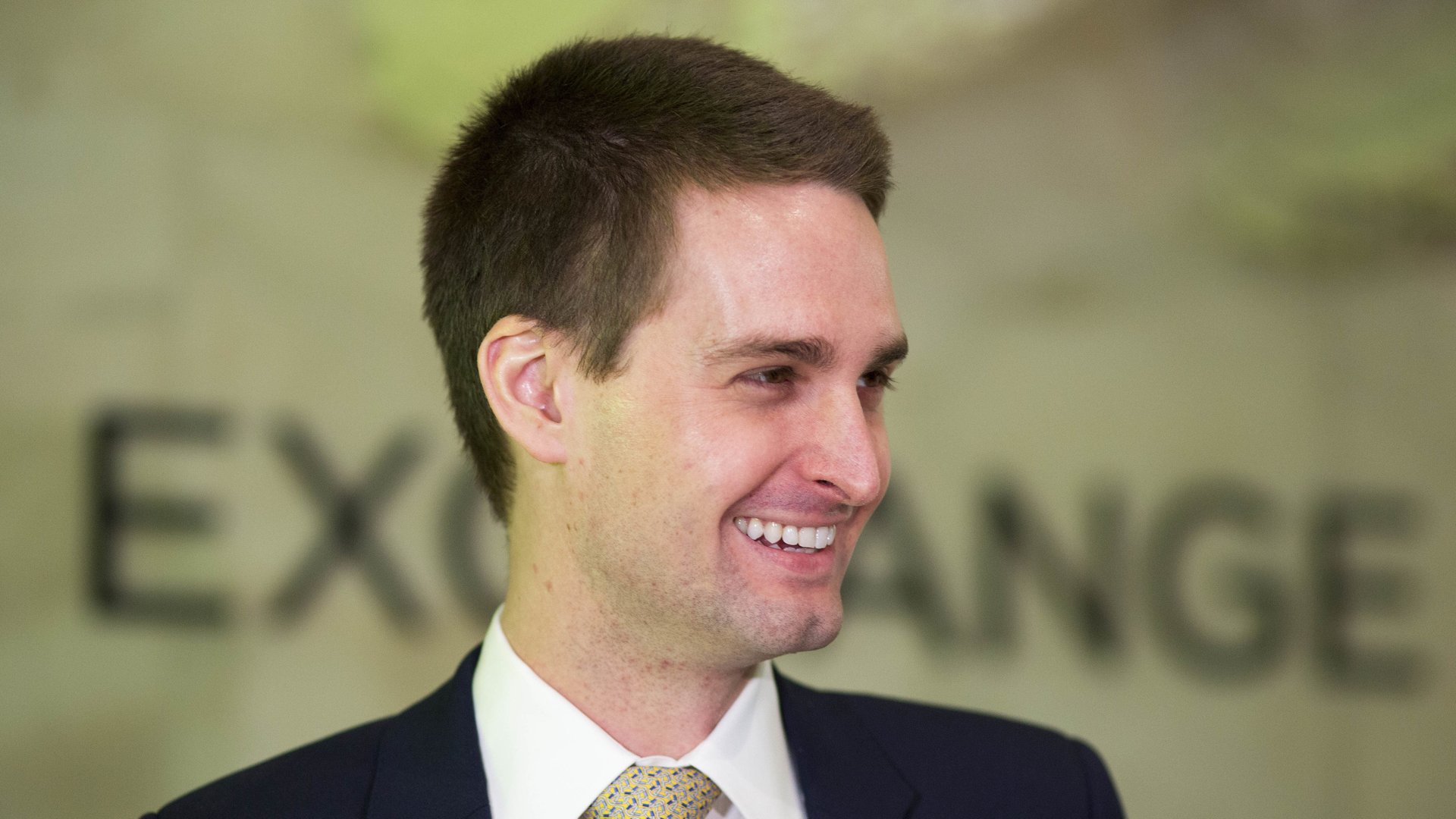Snapchat’s Evan Spiegel not-so-subtly bashes Facebook for spreading fake news
In order to promote the “new Snapchat,” a massive redesign of the struggling app, the company’s CEO also penned an op-ed for Axios that tore into Facebook. Without ever naming the company’s arch-rival, Evan Spiegel blames it for the spread of fake news, for destroying human relationships, and weakening the media.


In order to promote the “new Snapchat,” a massive redesign of the struggling app, the company’s CEO also penned an op-ed for Axios that tore into Facebook. Without ever naming the company’s arch-rival, Evan Spiegel blames it for the spread of fake news, for destroying human relationships, and weakening the media.
“The personalized newsfeed revolutionized the way people share and consume content. But let’s be honest: this came at a huge cost to facts, our minds and the entire media industry.”
In Axios’ signature bullet points, Spiegel talks about how the Facebook algorithm’s reliance on a user’s connection with friends, as opposed to their own interests, has enabled the rise of fake news and “mindless scrambles for friends or unworthy distractions.” With an emphasis on sharing content, it’s easy for misinformation to spread. All this, of course, is the opposite of what Snapchat is doing, Spiegel writes.
Snapchat has in fact avoided the Russian interference scandal. Contrary to multiple other Silicon Valley companies, it did not find evidence of foreign meddling in the spread of information on its platform, partly because of the nature of the app, which focuses on your interactions with a small group of friends, and partly because it is strict in choosing and vetting its media partners.
“The combination of social and media has yielded incredible business results, but has ultimately undermined our relationships with our friends and our relationships with the media,” Spiegel writes.
Snapchat and Facebook have a good deal of history. In 2013, Spiegel rejected a $3 billion bid from Facebook for his company, and ever since Facebook has taken great pains to copy Snapchat’s features on its platforms. The strategy has worked, as Facebook keeps posting stellar results, while Snapchat has struggled. Facebook, which also owns Instagram, dwarfs Snap in terms of users and is the dominant force in digital advertising, along with Google.
Spiegel believes the future of online communication is not posting on social media, but apps such as Snapchat, or even Facebook’s Whatsapp, which “are oriented around talking with your close friends, free from judgment.” He believes in this so much, he repeats the exact phrase twice in the 640-word op-ed, entitled “How Snapchat is separating social from media.”